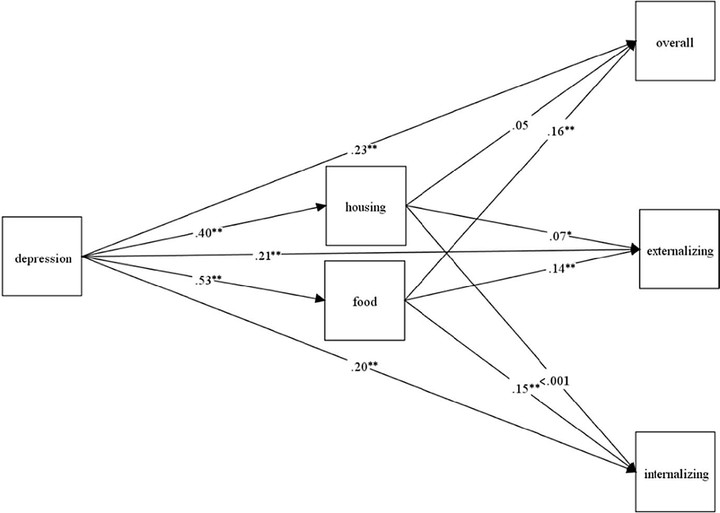Food Insecurity and Housing Instability Partially Mediate the Association Between Maternal Depression and Child Problem Behavior

Abstract
Maternal depression is a risk factor for the development of problem behavior in children. Although food insecurity and housing instability are associated with adult depression and child behavior, how these economic factors mediate or moderate the relationship between maternal depression and child problem behavior is not understood. The purpose of this study was to determine whether food insecurity and housing instability are mediators and/or moderators of the relationship between maternal depression when a child is age 3 and children’s problem behaviors at age 9 and to determine whether these mechanisms differ by race/ethnicity. We used the Fragile Families and Child Wellbeing Study. Food insecurity and housing instability at age 5 were tested as potential mediators and moderators of the relationship between maternal depression status at age 3 and child problem behavior at age 9. A path analysis confirmed our hypothesis that food insecurity and housing instability partially mediate the relationship between maternal depression when the child is age 3 and children’s problem behavior at age 9. However, housing instability was only a mediator for externalizing problem behavior and not internalizing problem behavior or overall problem behavior. Results of the moderation analysis suggest that neither food insecurity nor housing instability were moderators. None of the mechanisms explored differed by race/ethnicity. While our findings stress the continued need for interventions that address child food insecurity, they emphasize the importance of interventions that address maternal mental health throughout a child’s life. Given the central role of maternal health in child development, additional efforts should be made to target maternal depression, during and following the perinatal period.